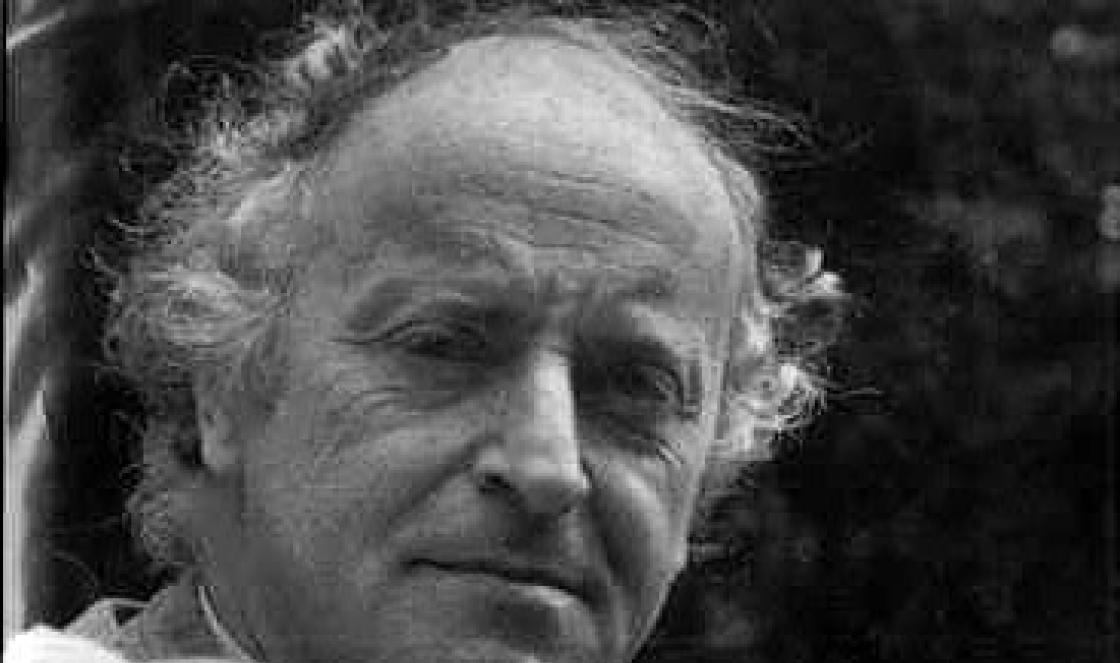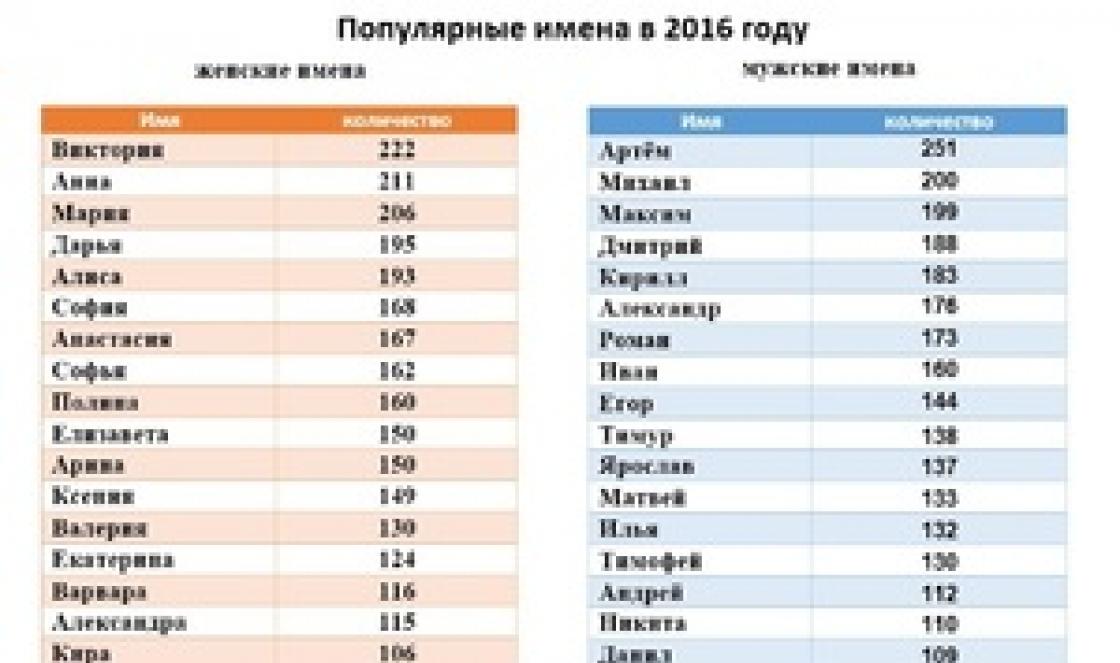Russian pension legislation requires annual indexation of pensions in accordance with the level of inflation achieved in the previous year. But in 2016, this rule was grossly violated. Instead of increasing insurance pensions by 12.9% (this was the official inflation in 2015), they were indexed only once: from February 1, by 4%, and only for non-working pensioners.
The second indexation seemed to be promised in the second half of the year, but there was no money for it. Indexation, which would have increased the monthly pension of each pensioner, but by different amounts, was replaced by a one-time lump sum payment of 5 thousand rubles for all pensioners living in Russia (both non-working and working) in January 2017. Now this money is being paid.
The decree signed by the head of government on January 19, which was made public on January 23, means a return to the usual rules for indexing pensions: the figure of 5.4% fully corresponds, according to Rosstat, to the inflation rate for 2016.
The certificate attached to the document states that “the increase in the size of insurance pensions from February 1 will affect all non-working recipients of insurance pensions (about 30 million people), as well as about 450 thousand non-working military pensioners who receive insurance along with the state pension old age pension."
The average size of the insurance pension after recalculation will increase by 384 rubles, for which about 130 billion rubles will be spent by the end of 2017.
Let us remind you: after indexation by 4% in February 2016, the average insurance pension in Russia was 13,200 rubles per month...
Along with the insurance pension, from February 1, 2017, the fixed payment will also increase by 5.4%, and again only for non-workers (this is stated in another government decree dated January 19).
Now base size This addition to the insurance pension or disability pension is approximately 4,559 rubles, which will be, accordingly, 4,805 rubles.
Some categories are entitled to a higher fixed payment towards their pension: those who have reached the age of 80, orphans, pensioners who support disabled family members, who have worked for at least 15 years in the Far North...
And according to the law, some categories are paid additionally to their pension in a reduced amount: for disabled people of group III, for example, the fixed payment is 50% of the base amount. The Pension Fund's expenses for increasing fixed payments in 2017 will amount to about 99 billion rubles.
This is not last indexing insurance pensions in 2017. From April 1, as Deputy Prime Minister Olga Golodets said, it is planned to recalculate them upward by another 0.4%: the fact is that the Pension Fund budget included money for indexation in the amount of 5.8% (this was the predicted level inflation based on the results of 2016), and it was also decided to spend these funds.
The amount of social security funds allocated does not always allow citizens who are no longer able to work to guarantee a normal standard of living. In this regard, many people have a question: what pension supplements are provided for non-working pensioners in 2017 and 2018.
The proposed material discusses the procedure for calculating pension supplements for non-working pensioners in 2017, the rules for recalculation and other related issues.
Due to the growth of inflation processes related to pricing policy, pensions for non-working pensioners are indexed annually, including in 2017. Its value is determined by the increase in prices over the last year period.
The increase in pensions for non-working pensioners in 2017 took place in stages:
- at the beginning of the year - payment of a one-time transfer of five thousand;
- from February – indexation for persons who have completed labor activity, up to 6.5 percent;
- in April – an increase in social pension accruals in a similar amount.
Not only the insurance component is subject to increase, but also the size of the fixed part.
Despite the fact that the total number of citizens dependent on the state amounts to more than a third of all able-bodied persons, government agencies are looking for the possibility of regularly increasing the amount of accrued amounts, which has resulted in an increase in the funds paid to the category of the population most in need.
At the same time, the total number of contributions made to the Pension Fund does not allow the above-mentioned activities to be fully carried out, therefore additional subsidies to the budget are required to ensure that the funds paid correspond to the price of basic products and mandatory payments, which is done at the state level.
Pay attention! To implement the indexation of the amount of accruals, payments made by working citizens are not enough; additional funds are attracted from the state budget.
To recalculate pensions for non-working pensioners in 2017. no personal contact with the relevant structures is required. The Pension Fund does this independently, using available data, so the increase in benefits is carried out without the personal participation of citizens, for this there is no need to provide additional documents.
However, do not forget that pension indexation in 2017 does not affect working pensioners. But if they end their working career, benefits will be recalculated accordingly.
Pay attention! Pensions for working pensioners are not subject to indexation in 2017.
Pensions for working pensioners were not increased in 2017, however, this support measure is planned for implementation in the future, as part of the ongoing pension reform.
What other allowances were made?
In addition to the indicated indexation, it is necessary to assign some additional allowances that take into account the amount of the established subsistence minimum.
The fact is that, in accordance with the law, the amount of social payments cannot be lower than the indicated indicator, because in this case the necessary standard of living is not ensured.
If a citizen experiences a similar situation after accrual of payments, additional transfers are required to raise the benefit to the specified level.
This applies:
- to persons who have finished working and have no other means of subsistence;
- if you have Russian citizenship.
Such allowances are assigned in accordance with:
- pensioners by age category;
- persons with disabilities;
- if the benefit is due in accordance with length of service or due to the loss of a breadwinner;
- for former law enforcement officers.
The following types of compensation have been established:
- from the state or federal budget obligatory for payment;
- from the regional budget, if possible.
If we consider the size of the minimum consumer basket, on the basis of which the smallest possible amount of benefits is determined, then it varies depending on the region. Therefore, this criterion may vary in different regions. In addition, regional prices for utility bills and other mandatory payments that must be made by citizens are taken into account.
If this indicator changes, the amount of compensation is subject to corresponding recalculation.
The need to charge such additional payments is determined by local authorities and regulated by regional bills.
In accordance with legal requirements, such social allowances may be assigned to the following categories of the population:
- those who have completed their working career, provided there is no other income;
- if these persons reside within the country. In case of relocation, the accrual of payments is suspended automatically and will not be returned in the future;
- the total level of accrued funds for an individual cannot amount to the amount determined by the subsistence level.
Another factor influencing the increase in pension accruals is the amount of hours worked. length of service. If a person continues to work after reaching retirement age, for this he is awarded additional points, which affect the amount of subsequent accruals. The main points that increase the amount of additional payments for overworked experience include:
- what industry did the person work in?
- in which region did you live and work?
- in what amount was the wage bonus calculated?
Taking into account the noted indicators, the number of points earned increases and, accordingly, the amount of future payments increases.
Conclusion
As we can see from the presented material, the state takes care of the least protected category of the population, carrying out regular indexations of pension benefits and compensating their amount if it is accrued in an amount below the subsistence level.
But it should be borne in mind that this applies only to the category of citizens who have already finished working, and there was no increase in pensions for working pensioners in 2017, since they have additional sources income.
The “freeze” of increases introduced in 2016 insurance pension for working pensioners will continue to operate in 2018. This means that citizens who continue to work after retirement were not affected by the January indexation. Thus, for working pensioners, pension payments can be increased only if:
- , which is made on August 1 - in this case, the amount increases by the number of pension points earned by the citizen last year (but not more than 3 points per year);
- — in this case, the citizen’s pension is calculated taking into account missed indexations from the month following the month of dismissal.
In both the first and second cases, contact the Pension Fund authorities and write an application for recalculation no need- these procedures are carried out without a declaration on the basis of data that Pension fund reported by employers. As for dismissal, from January 1, 2018, changes were made at the legislative level to the process of indexing pensions for working pensioners after dismissal. Before the new year, all citizens who quit their jobs had their payments recalculated, taking into account all missed raises, only three months after the dismissal.
However, after the new year, Federal Law No. 134-FZ of July 1, 2017 came into force, according to which a pensioner who quit after January 1, 2018, pension benefits are recalculated taking into account all indexations missed during work and are paid in an increased amount from the first day of the month after termination of employment.
At the same time, a citizen will not immediately feel the increase in pension, because the process of additional accrual, as a rule, takes three months. This is due to the “technical” features of presenting information:
- in the first month after dismissal, the Pension Fund receives information from the employer that the citizen is still listed as employed;
- in another month the employer will transmit information that the citizen is no longer working;
- and only in another month will the Pension Fund of the Russian Federation decide to resume indexation.
Thus, only after three months the pensioner will receive his fully indexed insurance pension. And also monetary difference between the previous and the current (indexed) payment amount - for all three months of renewal of indexation, during which he did not work.
Latest news and changes
As noted above, in 2018 some changes were made to the pension system. First of all, innovations concern insurance pensions:
- firstly, in 2018, the indexation of insurance coverage was carried out a month earlier than expected - on January 1;
- secondly, the calculation procedure has changed labor pension for old age after the dismissal of a working pensioner from work - the period remains the same (3 months), but now the citizen will be able to receive cash for these months, representing the difference between the previous payment amount and the amount after taking into account all indexations, starting from the next month after dismissal.
The changes also affected social security. Was introduced new look pensions - social pension for children whose both parents are unknown(in other words, for “foundling children”).
- At the same time, some issues were avoided by the changes in 2018. So there is still insurance coverage for pensioners engaged in working activities.
- in 2018 is also relevant (in general it has been extended at least until 2020 inclusive). However, it is worth noting that the formation pension savings suspended only when the employer pays insurance premiums; depositing funds into your account in the form of voluntary contributions is not prohibited.
Will there be a one-time payment of 5,000 rubles to pensioners in 2018?
In January 2017, all pensioners in Russia, regardless of whether they work or not, received 5 thousand rubles. This amount was paid only once and was not an addition to the monthly pension.
This measure was introduced by Federal Law No. 385-FZ of November 22, 2016 due to the fact that in the previous 2016 the indexation of pensions was not carried out completely (by only 4% instead of 12.9%). Thus, having paid each pensioner 5,000 rubles, the Government decided to compensate citizens for the “under-indexed” funds for 2016.
In 2017, the situation changed - the total indexation of pensions was 5.8%, which exceeded the level of actual inflation (5.4%). In this regard, the Government has no grounds for re-introducing this measure in 2018, and re-lump sum payment in the amount of 5 thousand rubles will not be available.
How many points and insurance experience do you need to retire in 2018?
In accordance with the legislation of the Russian Federation, since 2015, the pension rights of Russians have been formed in pension points (IPK - individual pension coefficients). According to Article 8 federal law No. 400-FZ dated December 28, 2013 old age pension insurance Only those citizens who have achieved and have a sufficient number of and can apply for it.
In 2018, issue old age insurance benefit persons can:
- who have reached the generally established retirement age in the country 55 years (women) and 60 years (men). For individual categories citizens, payment can be established ahead of schedule (miners, teachers, etc.), or vice versa, later (persons holding government positions);
- having a minimum 13.8 pension points;
- whose work experience is at least 9 years.
At the same time maximum quantity points, which can be obtained this year - 8,7 (when forming only an insurance pension) and 5,43 (when forming insurance and savings payments).
Will the retirement age increase in 2018 in Russia?
The topic has been worrying Russians for several years now. At least, no increase expected in 2018. However, there is no guarantee that the retirement age will not be increased in the following years, including starting from January 1, 2019. Various options raising the old age pension age has been officially considered by the Government since the spring of 2018.
Despite the fact that in other countries the age for retirement has long been higher than the generally established age in Russia (for example, in Germany - by 5 years), and in the CIS countries this initiative has already been supported (in Belarus and in Kazakhstan by 3 years - an increase is taking place gradually for six months every year), the majority of Russian citizens relate to this sharply negative.
People's indignation over raising the retirement age is not surprising. The government wants to raise the bar, based on the fact that many pensioners continue to work after receiving security, thereby increasing the length of their working age. However, most of the working pensioners are forced to continue working because their pension is not enough to live on.
There will be no autumn indexation, and pensions in November 2017 will be paid in the same amount. But already on the first day of the new year, Russians will receive 400 rubles more. According to the Penfund of Russia, the average amount of social benefits for old age this year was 13,657 rubles. In 2018 – 14,045 rubles, which is almost four hundred rubles more.
Pension indexation will be almost 4%
The expected pension increase will take place at the very beginning of January, while the payment schedule will remain the same. The planned pension recalculation will be 3.7%. The bill has already been approved by the Government and is currently being considered in the State Duma.
The head of the Penfund of the Russian Federation, Anton Drozdov, announced an increase in pensions by 11% in the next two years. The increase will affect unemployed pensioners. Experts say that such forecasts are quite natural and the fact that the indexation of pensions is outpacing the growth of inflation is a positive sign.
« The state pays off debts. I believe that<…>indexation will outpace inflation, and pensioners will benefit", says Doctor of Economics. Sergey Smirnov.
He is also confident in a stable economy in the coming years, which will allow for timely recalculations without replacing them lump sum payments.
Recalculation of social pensions
Recipients of social pensions - for disability, loss of a breadwinner or for elderly care - will receive increased payments in the spring, since this category will be recalculated only from April 1, 2018. It is expected that social pensions will increase by 4.1%. This growth is due to calculations based on the cost of living of a pensioner.
The minimum living wage of a pensioner in the country over the past seven years
| Year | Living wage for a pensioner, in rubles. |
| 2010 | 4’780 |
| 2011 | 4’938 |
| 2012 | 5’564 |
| 2013 | 6’131 |
| 2014 | 6’354 |
| 2015 | 7’161 |
| 2016 | 8’803 |
| 2017 | 8’540 |
As for recalculation for military pensioners and citizens who continue to work, these issues have not yet been resolved. Finance Minister Anton Siluanov has repeatedly stated that for working pensioners, last year’s regime is being maintained (the law abolishing indexations for this category of recipients).
How to apply for recalculation
Recalculation of pensions is carried out on the basis of an application and without it. In the first case, it is carried out from the first day of the next month and can be carried out in the following cases:
- the applicant’s residence in the Far North;
- changes in the number of disabled family members;
- achieving the required calendar work experience in the Far North;
- changes in the situation to receive an insurance pension for the loss of a breadwinner.
In other cases, recalculation is made without a written application from the recipient.
Latest pension news
Meanwhile, the latest news reports that the reform to raise the retirement age is being postponed. Experts are confident that this event is inevitable, but not in the near future. Most likely, this topic will arise after the presidential elections in the country and will take a lot of time, since there will be long discussions at all levels of government. In the meantime, Russians retire at 55 and 60 years old, women and men, respectively.
The Pension Fund offers another way to increase the size of your pension - delaying retirement. The department explains that when applying for a pension not in the year of retirement, but later, the recipient is accrued increased pension.
Important! You can delay retirement for a period of no more than 10 years.
Also, a working pensioner may temporarily refuse to receive insurance payments, provided that he is employed for a period of at least one year. The increase will occur due to bonus coefficients, as well as planned indexations that will be made during the period while the pensioner is working.
Otherwise, pensions are paid according to the approved schedule. Payments will begin next month from November 1, not before. If the recipient changes his place of residence, he must notify the territorial office of the Pension Fund in writing.





